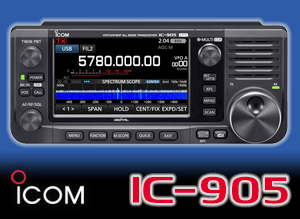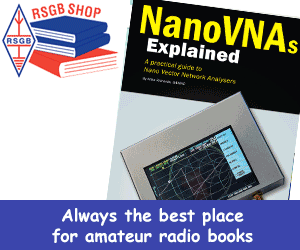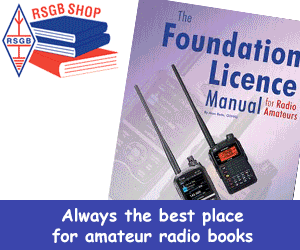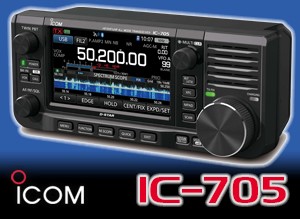Amateur radio research and development
Promoting active involvement in research and technical development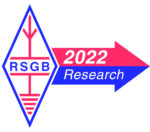
Research, closely coupled with innovation, is one of the fundamental underpinnings of amateur radio, and has been since its inception when simply making a contact with another station was a cutting-edge achievement.
The research contribution that radio amateurs make to the technology and physics of radio communication is recognised globally, and is one of the reasons that we have access to such large swathes of commercially-valuable spectrum to experiment with. Unlike commercial operators, radio amateurs have no constraint on what waveform they use in part of their allocated spectrum, thereby encouraging us to try new and innovative approaches to radio communications.
So, what does the RSGB do to promote active involvement in research and technical development?
Enabling continued access to new and existing spectrum is the first thing. One instance of this is the work that the RSGB did to secure access to an additional 1MHz of spectrum at 146MHz exclusively for VHF digital experimentation. Permission to use this spectrum is available to any UK radio amateur with a Full licence through the online NoV system that the RSGB runs on behalf of Ofcom.
The RSGB encourages its Members to publish their work on advanced amateur radio technology in RadCom and the occasional publication, RadCom Plus. The work published by Andy Talbot, G4JNT, in his regular columns (Design Notes and Data) is often at the cutting edge of amateur radio technology.
The RSGB, through its Legacy Fund, has provided funding for projects aimed at supporting innovation. Funding was provided for the ground-breaking work that Dr Martin Sach, G8KDF did on understanding the detailed characteristics of VDSL2, which must surely be the first step in building a method of digitally mitigating its impact on received signals. In the autumn, the RSGB Legacy Fund also subsidised a course organised by John Worsnop, G4BAO designed to encourage radio amateurs to experiment with GNU Radio Companion, and to teach others to do likewise. The Legacy Fund is always looking for proposals for innovative ideas that will advance amateur radio – if you have an idea, please email legacy.chairman@rsgb.org.uk
The annual RSGB Convention always includes topics at the forefront of radio innovation. Indeed, the Convention organisers always invite talks from scientists and academics to further our knowledge of a wider range of scientific subjects. Two examples of advanced work presented at the 2018 RSGB Convention were the talks given by Jenny Bailey, G0VQH and Heather Lomond, M0HMO. Jenny considered the use of drones to make antenna measurements which illustrated new methods of antenna instrumentation, whilst Heather gave an introduction to SDR and GNU Radio which showed radio amateurs how they could experiment with new SDR concepts. See Convention videos here.
The RSGB organises one of the largest contesting programmes of all of the IARU societies. This catalyses research by the leading competitors into new technical and operating techniques to make their stations more competitive. Recently, the contest committees have made available the logs of the entrants for research. These logs form a large data set, and the mining of large data sets is a modern method of research. Members are encouraged to see what they can glean from this data about long and short-term propagation effects.
In a new approach, which may be thought of as a research project itself, the RSGB has set up the Innovations Working Group. This is a think-tank tasked with generating new, unconventional ideas related to amateur radio and seeding new ideas amongst the community. It is in the nature of research that it generates unexpected results, and we await its findings.
The RSGB recognises the importance of research through its top-level awards, with approximately a quarter of the AGM awards being tied to innovation. For example, the Wortley-Talbot Trophy is awarded for outstanding experimental work in amateur radio, the Fraser Shepherd Award is awarded for research into microwave applications to radio communication, and the Louis Varney Cup is awarded for advances in space communication.
The question arises as to what one might do to assist in amateur radio research. The most important thing is to continue to learn, to think outside the box and to ask questions about why things are as they are, and how we might use them to benefit society. Obviously, we cannot change the laws of physics, but we can understand them better and use the new knowledge to improve radio communications. We should remember that the only silly question about radio is the one we do not ask, and that by simply making amateur radio contacts may contribute to the research of others.
Dr Stewart Bryant, G3YSX, Board Director
g3ysx@rsgb.org.uk
Category: RSGB Strategy 2022

